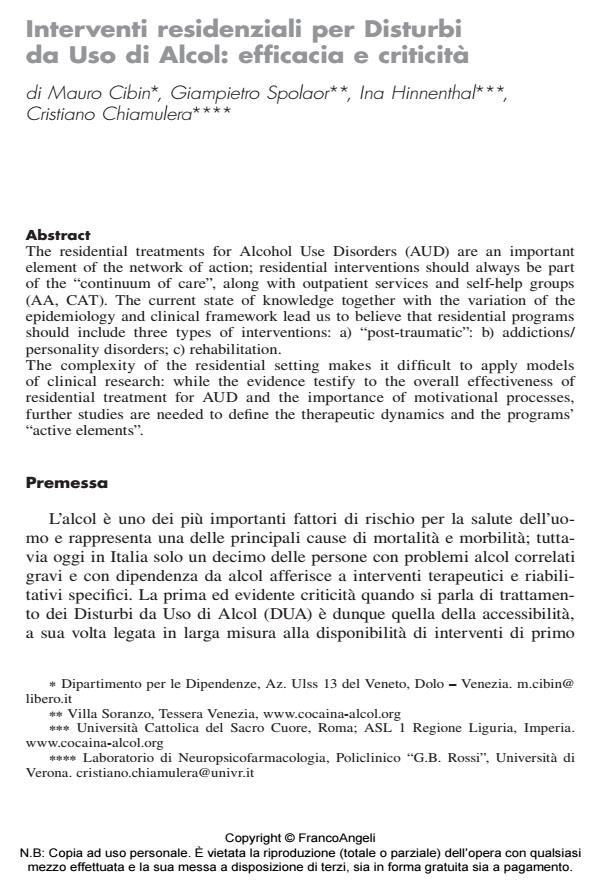Interventi residenziali per Disturbi da Uso di Alcol: efficacia e criticità
Journal title SICUREZZA E SCIENZE SOCIALI
Author/s Mauro Cibin, Giampietro Spolaor, Ina Hinnenthal, Cristiano Chiamulera
Publishing Year 2014 Issue 2014/3
Language Italian Pages 14 P. 88-101 File size 133 KB
DOI 10.3280/SISS2014-003007
DOI is like a bar code for intellectual property: to have more infomation
click here
Below, you can see the article first page
If you want to buy this article in PDF format, you can do it, following the instructions to buy download credits

FrancoAngeli is member of Publishers International Linking Association, Inc (PILA), a not-for-profit association which run the CrossRef service enabling links to and from online scholarly content.
The residential treatments for Alcohol Use Disorders (AUD) are an important element of the network of action; residential interventions should always be part of the "continuum of care", along with outpatient services and self-help groups (AA, CAT). The current state of knowledge together with the variation of the epidemiology and clinical framework lead us to believe that residential programs should include three types of interventions: a) "post-traumatic": b) addictions/ personality disorders; c) rehabilitation. The complexity of the residential setting makes it difficult to apply models of clinical research: while the evidence testify to the overall effectiveness of residential treatment for AUD and the importance of motivational processes, further studies are needed to define the therapeutic dynamics and the programs’ "active elements".
Mauro Cibin, Giampietro Spolaor, Ina Hinnenthal, Cristiano Chiamulera, Interventi residenziali per Disturbi da Uso di Alcol: efficacia e criticità in "SICUREZZA E SCIENZE SOCIALI" 3/2014, pp 88-101, DOI: 10.3280/SISS2014-003007